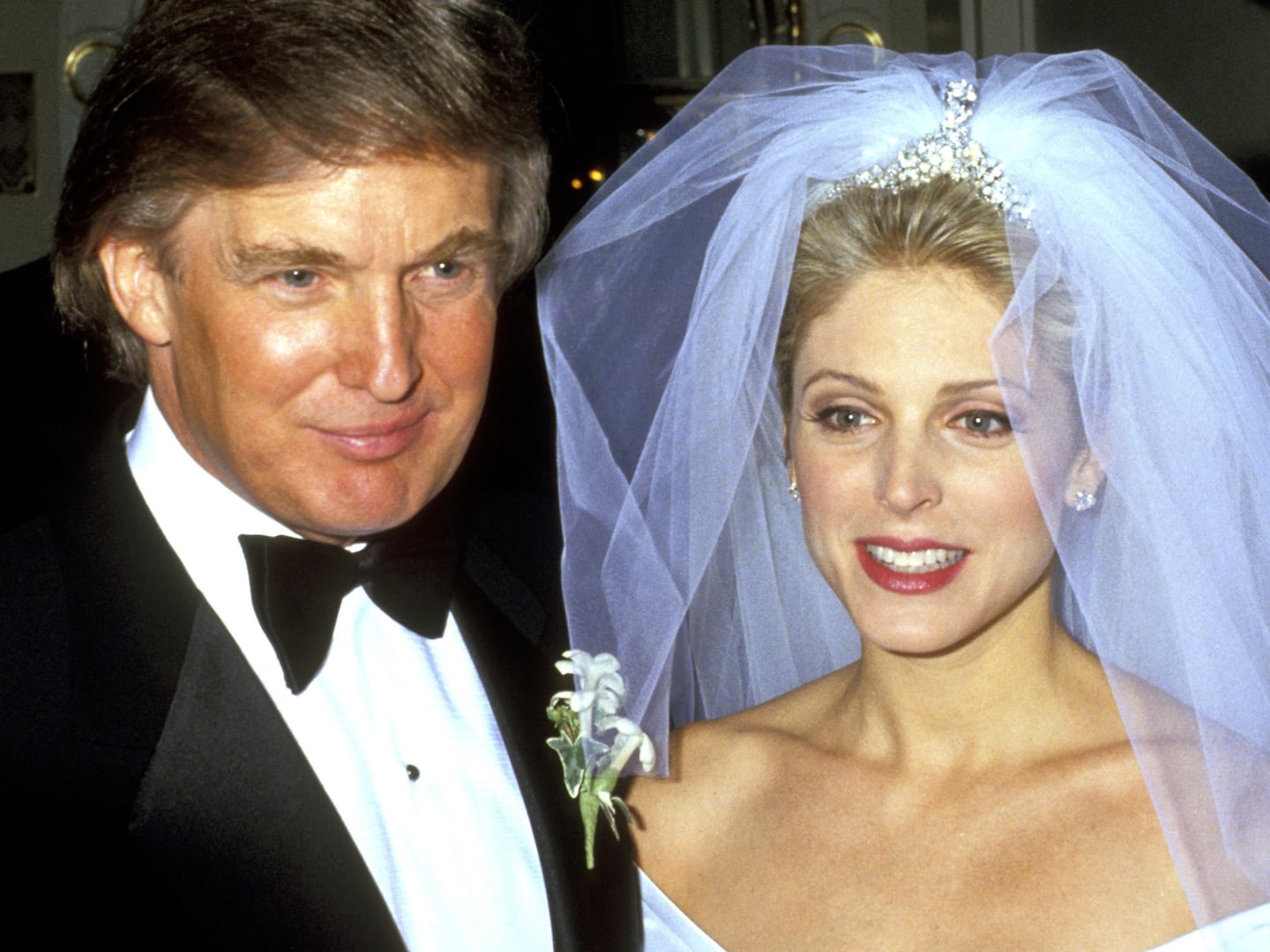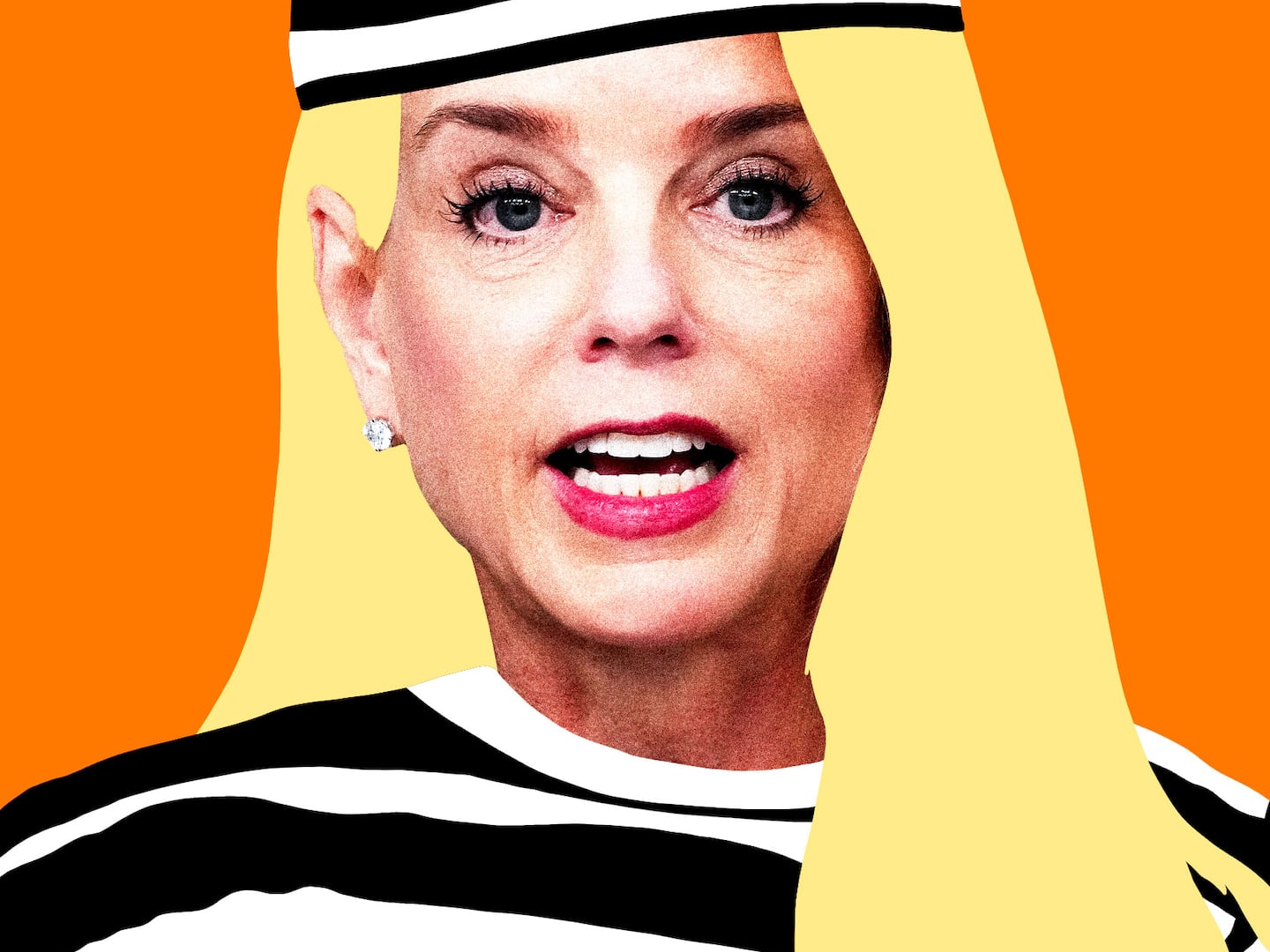Is Chris Christie just a Jersey Giuliani?
That’s what top Democrats told reporters on a conference call on Wednesday, one day after Christie cruised to reelection as governor of New Jersey. That victory, over State Senator Barbara Buono, immediately set off a Christie-for-president boomlet as his backers touted him as someone whose 22-percentage-point victory in a blue state meant that he was the kind of candidate who could appeal to the independents and moderates necessary for a Republican to win the White House.

And so, the press asked, did the Democratic Party regret not campaigning more vigorously, in order to take some air out of the Christie bubble?
No, party officials, said: Christie is going nowhere on the national level. For evidence, they pointed to the presidential campaign of Rudy Giuliani, who in the very early stages of the 2008 campaign raked in money and seemed an all-but-certain nominee.
“The Christie boomlet feels to me like the Rudy Giuliani boomlet,” said Mo Elleithee, spokesman for the Democratic National Committee. “Where people say, ‘Oh, here is a Republican who knows how to win in blue territory after, in part, some sort of empathetic connection to a national tragedy.’ We have seen this model before.”
That model, as executed by Giuliani, crashed just as voters were paying attention, and the onetime frontrunner exited the 2008 campaign without carrying a single state.
Christie’s presidential exploration has hardly begun, but many of the people in his inner circle are vets of the Giuliani ’08 effort, including chief adviser Matt Duhaime, who was the campaign manager for Giuliani, communications chief Maria Comella, who was deputy communications director on the Giuliani campaign, and Bill Stepian, who led Christie’s first campaign and was the field director for Giuliani.
One person who thinks that the crew has learned from the first time around is Rudy Giuliani.
“Yes, of course they have,” he told The Daily Beast. “If I were to run again, which I am not, I would be a lot better candidate for president than I was the first time I did it. The people around you have been through something like that; it is a great advantage to him.”
People close to Christie pointed out that the governor has another huge advantage over Hizzoner: He is actually a conservative. Sure, he may not be a right-winger of the guns, gays, and God type, but he is pro-life, anti-gay marriage, cut taxes and spending, and is close to the mainstream of the party on immigration.
Giuliani was to the left of his party on all of those, including signing one of the first domestic-partnership bills in the country. Even now, he says the immigration-reform bill going through Congress does not go far enough.
“I am pro-choice, and that is almost a disqualification,” he said. “Christie is pro-life. I don’t think Democrats understand the Republican primary process. The reality is that being pro-life immediately gets him off the disqualification list. That is entry test No. 1. If you don’t pass that, you don’t get to any of the others. For people who are pro-life, it is a life and death issue, that’s the way they see it.”
Close watchers of both say that Christie is a far more natural politician than Giuliani, who could grumble at some of the indignities that are required in terms of retail politicking in the early primary states. Of course, Christie is far more likely to have a confrontation that can be mistaken for assault, but even his YouTube moments come with a distinctive smile on his face.
There are some Republicans, however, who see the same pitfalls ahead for Christie that Democrats describe. They point to the struggles that John McCain and Mitt Romney had, who each had to run twice before winning the nomination, and even then over the objections of more conservative members of their party.
Rick Wilson, a GOP strategist who worked on both Giuliani’s mayoral and presidential efforts, said that Christie has to prove that he is willing to scrape and beg among the small-town powerbrokers of early primary states.
“It’s a real question: Does he want to go some guy’s living room in Davenport and sit at his kitchen table for a while, or talk to the guy in New Hampshire who is a town selectman, and drink coffee at the local diner and pretend to be interested in his issues,” he said. “One argument that does not work in South Carolina and Iowa is ‘I am from Blue Jersey. I can win all of these other states for you if you just stick with me.’”
Christie will have to do some repair work with grassroots Republicans that Giuliani did not have to do. Although the mayor kept his distance from the national GOP while he was in office, after leaving, he became an enthusiastic campaigner around the country for state and local pols. Christie, meanwhile has made a name for himself mostly by bashing the Republican establishment. It has not gone unnoticed among rank-and-file GOPers that the governor did not campaign with Tea Party hero Ken Cuccinelli is his campaign for governor of Virginia. Yet after he won Tuesday, he quickly announced that he would campaign for Sen. Lindsey Graham of South Carolina, someone who is already facing three Tea Party-infused challengers in his reelection campaign.
Giuliani suggested that there was time to make amends, especially now that Christie is set to become head of the Republican Governors Association and will travel the country on behalf of his fellow GOP governors.
“It depends on the way he conducts himself now. I think up until now, despite whatever longtime ambition he had, his major goal was to get reelected in a heavily Democratic state. In order to get reelected, he had to emphasize his independence. Now he is going to have to show that he is independent, but a very loyal Republican.”
When Giuliani started to slip in the polls in 2008, his campaign abandoned the early primary states of New Hampshire, Iowa, and South Carolina, and began to focus all of its energy on more moderate Florida. GOP operatives are urging Christie to compete everywhere.
“Everybody wants to break up the GOP primary system, including me,” said Wilson. “The calculus, though, of ‘I will just try to survive long enough to compete in California and the big states’ just won’t work. They have to have their eyes wide open about the way things are, and not how they want them to be.”
Christie will also face a much different landscape than the one that Giuliani faced. In 2008, Giuliani’s decision to hold his fire made more sense since there were a number of states voting right after the early states in a February “Super-Duper Tuesday.” It is unclear what the primary schedule will look like in 2016, but Christie also will not likely have to face another crop of establishment Republicans who can tout their own electability.
In the interview, Giuliani noted that his fate was entirely tied to John McCain’s—when one rose, the other sank, and the reverse was true.
“His main appeal is that he seems like a common-sense tough guy. He seems like a Harry Truman—rough around the edges, but has common sense. Has an ideology, but is willing to make deal. I think there is a tremendous appeal to that. He is legitimately the frontrunner.
Unless, he quickly added, “Jeb Bush gets in. If Jeb Bush gets into it, he is like Hillary on the Democratic side.”






